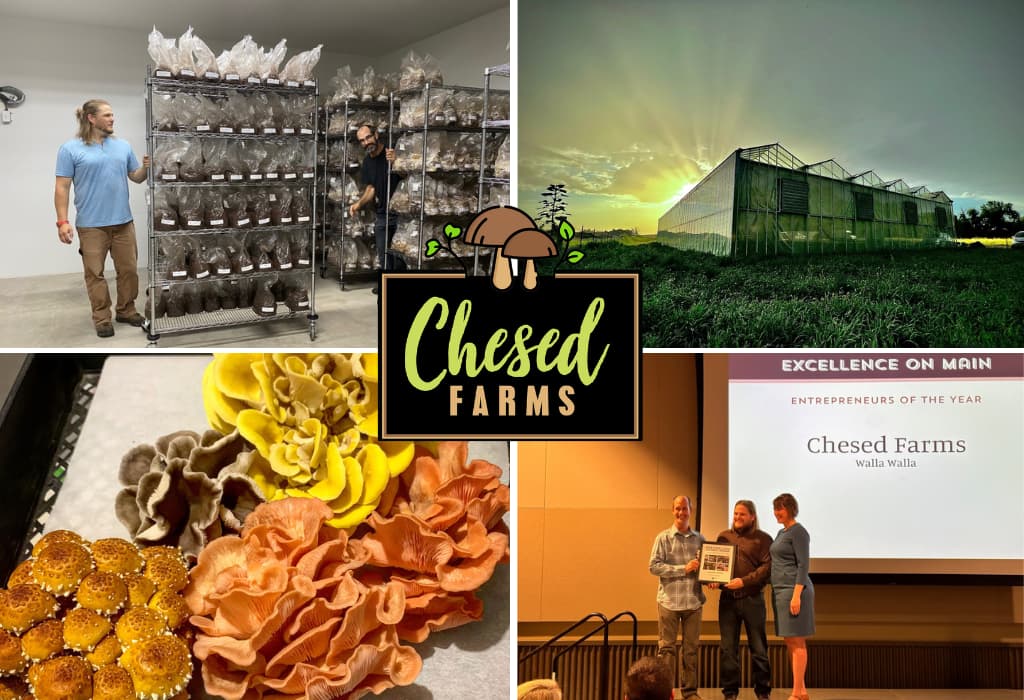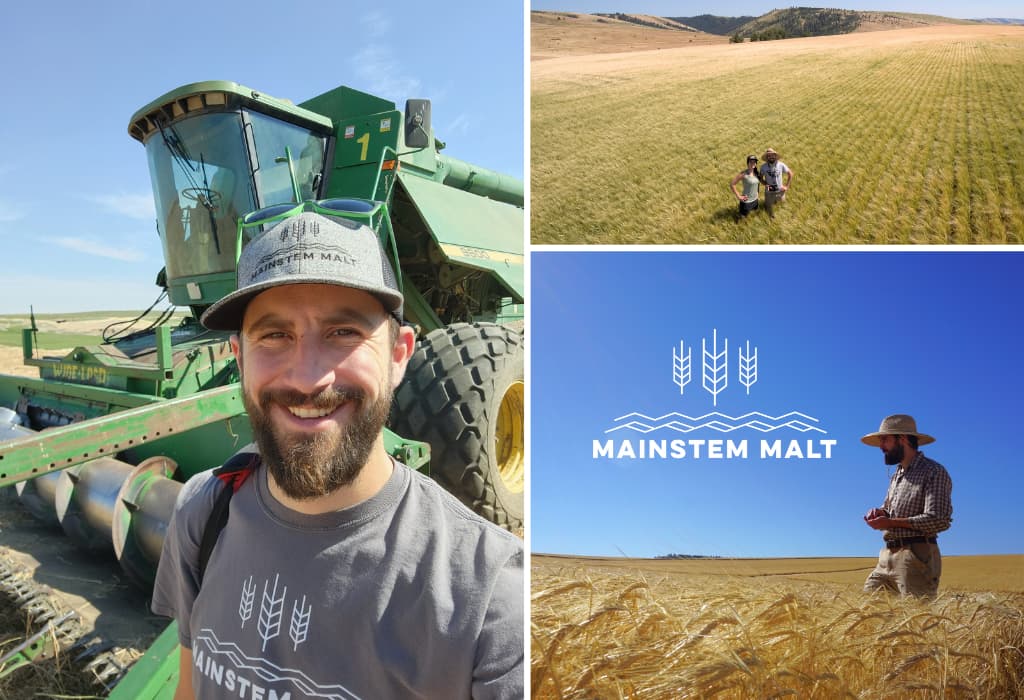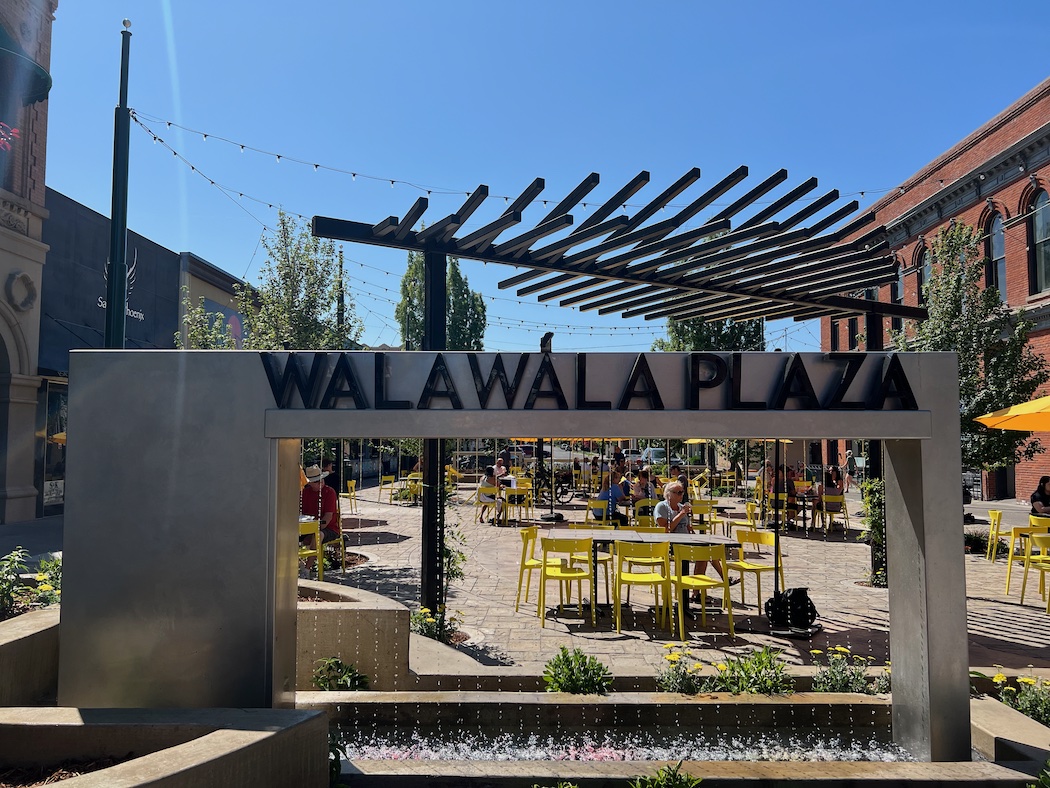
Cheesed Farms: Finding Balance in Growth
By most accounts, Walla Walla’s gourmet mushroom business is the picture of sustainable growth.
Sundown Hazen launched Chesed Farms with founding business partner Johnathan Garrett on a shoestring of $5,000. “We took what we had: a couple thousand bucks and my garage,” Hazen says. With research and YouTube videos, they created a climate-controlled space to grow mushrooms both year-round and vertically for the biggest yields they could get outside the cost of a building — all while still being able to park two vehicles inside the remaining space.
Four days after they filed for permits, COVID-19 shutdowns began. The duo, nevertheless, launched their business with an online and social media presence. While he worked nights stocking shelves at Safeway, Hazen made daytime bicycle deliveries of the 10 to 30 pounds of pearl and golden oyster mushrooms he and Garrett grew each week.
Demand took off for the specialty mushrooms, including lion’s mane, royal trumpet, and chestnut.
The business has come a long way since. Chesed Farms moved from Hazen’s garage to a 4,000-square-foot warehouse off Heritage Road. The business participates in five local and regional farmers markets, has built relationships with eight physical and virtual stores or subscription services and 21 area restaurants, acquired 14 acres and a greenhouse, and ventured into tomatoes and herbs — a move Hazen has come to frame as a cautionary tale.
Financing mechanisms have included loans from friends and family, a high-interest loan from a nonprofit lender, an angel investor and traditional institutional lending.
The trajectory has positioned Chesed Farms for regional distribution as the next major step in growth. But simultaneously, Hazen is tackling a challenge that may be less obvious to fans of the business’ mushrooms: overleveraging.
“The money we’ve made has had to service debt,” he says. “It’s the old adage of don’t take on too much.”
The operation’s launch was possible with loans from friends and family. Their investments helped Chesed Farms establish practices and revenue streams — critical for building history and confidence from lenders.
For the unsecured loans, he used an online legal service template to create a promissory note. Terms included interest and a loose timeframe for repayment.
After honing a business plan through the Walla Walla Small Business Development Center, Chesed Farms next secured a high-interest loan in late 2020 from Craft3, a nonprofit Community Development Financial Institution. The funds were used on materials and equipment that helped build out the warehouse space.
“What we started with was pretty much a big concrete box,” Hazen says. “We built every wall and system in it.”
Not long after, in late 2021, Hazen met Arnold Klassen through a men’s group. Klassen’s investment in exchange for equity helped pay off the Craft3 loan, plus a couple of others to family and friends. It also provided funding for equipment upgrades and positioned Chesed Farms with a down payment for the Wallula Avenue greenhouse property, slated for expansion into mircrogreens, herbs and tomatoes.
Turned down for loans by two other lenders, Hazen worked with Baker Boyer Bank and Farm Service Agency to secure financing for the purchase.
So bright was the vision and growth that Chesed Farms was named Entrepreneur of the Year in 2022 in the Washington Trust for Historic Preservation’s Excellence on Main Street Awards.
About a year and a half into the greenhouse expansion, Hazen and Klassen — now primary owners with Garrett’s relocation to Portland — changed gears. They decided to pivot away from the greenhouse operation and recenter on mushrooms.
“At the end of the day, when we started to look at what made sense — we were doing too much,” Hazen says. “We looked at the books, and 90% of the revenue from the business came from mushrooms.”
They scaled back as much overhead as possible. Hazen and his family took on the primary labor of the operation. He also started taking on more work at Abeja, where his mushrooms are often a featured ingredient on the menu.
He juggles working there with his ambitions for Chesed Farms’ vision of delivering fresh, local goods that eliminate food miles associated with traditional supply chains.
Hazen now plans to retrofit the greenhouse and move the mushroom operation there. With the farm property subdivided, selling a portion of the land will also help eliminate some of the debt accrued in the first four years of business.
“What we’re doing now with the greenhouse is what we should have done when we bought it,” Hazen says. “We diversified in the wrong way. We should have more strategically diversified within the mushroom realm.”
He remains encouraged by those who share a passion for locally sourced food.
“There is so much potential in growth,” he says. “We have the potential to be a significant regional player — both through expanding our own operations and collaborating with other growers.”



